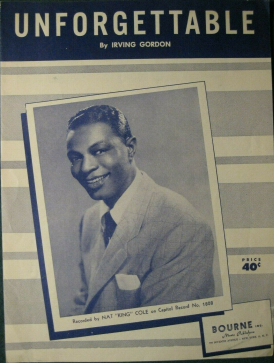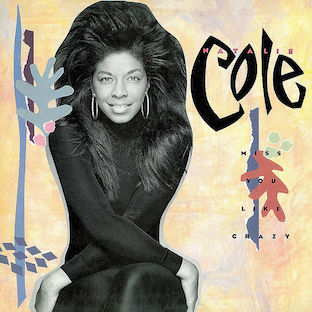
"I'm Every Woman" is a song by American singer Chaka Khan, released in September 1978 by Warner Bros. as her debut solo single from her first album, Chaka (1978). It was Khan's first hit outside her recordings with the funk band Rufus. "I'm Every Woman" was produced by Arif Mardin and written by the successful songwriting team Nickolas Ashford and Valerie Simpson. The single established Chaka's career outside the group Rufus, whom she would leave after their eighth studio album, Masterjam, was released in late 1979.

"When a Man Loves a Woman" is a song written by Calvin Lewis and Andrew Wright and first recorded by Percy Sledge in 1966 at Norala Sound Studio in Sheffield, Alabama. It made number one on both the Billboard Hot 100 and R&B singles charts. Country singer John Wesley Ryles had a minor hit with his version of the song in 1976. Singer and actress Bette Midler recorded the song and had a Top 40 hit with her version in 1980. In 1991, Michael Bolton recorded the song and his version peaked at number one on both the Billboard Hot 100 chart and the Billboard Adult Contemporary Singles chart.

"Last Dance" is a song by American singer Donna Summer from the soundtrack album to the 1978 film Thank God It's Friday. It was written by Paul Jabara, co-produced by Summer's regular collaborator Giorgio Moroder and Pete Bellotte, and mixed by Grammy Award-winning producer Stephen Short, whose backing vocals are featured in the song.

"It's Only Make Believe" is a song written by drummer Jack Nance and Mississippi-born singer Conway Twitty, while they were touring across Ontario, Canada in 1958. Twitty was a relatively unknown rock n' roll singer at the time, and this song was his first hit, reaching No. 1 on the Billboard chart in November 1958 for two weeks.

"I'll Never Love This Way Again" is a song written and composed by English musician Richard Kerr and American lyricist Will Jennings, and first recorded by Kerr himself for his album Welcome to the Club as "I Know I'll Never Love This Way Again", released in November 1978. A version by Cheryl Ladd was released first on her self-titled album in July 1978. The song became a hit for American singer Dionne Warwick the following year, which was produced by her labelmate Barry Manilow for Warwick's Arista Records debut, Dionne. It was also recorded by British singer Cherrill Rae Yates before Warwick recorded and released her version of the song.

"Unforgettable" is a popular song written by Irving Gordon. The song's original working title was "Uncomparable,” however, the music publishing company asked Gordon to change it to "Unforgettable.” The song was published in 1951.

"Too Much, Too Little, Too Late" is a song performed by singers Johnny Mathis and Deniece Williams. Lyrics and music were arranged by Nat Kipner and John Vallins. The single was a comeback of sorts for Mathis as his last U.S. top 10 hit was 1963’s "What Will Mary Say" and his last U.S. #1 hit was 1957's "Chances Are."
"Pink Cadillac" is a song by Bruce Springsteen released as the non-album B-side of "Dancing in the Dark" in 1984. The song received much airplay worldwide and appeared on the Billboard Top Tracks chart for 14 weeks, peaking at No. 27. The song was also a prominent concert number during Springsteen's Born in the U.S.A. Tour.

"Tell Me a Lie" is a song composed by Mickey Buckins and Barbara Wyrick. Originally recorded by Lynn Anderson for her 1974 What a Man My Man Is album, it was released later that same year as a single by Sami Jo Cole, who took it to number 21 on both of the major U.S. pop charts. It also charted in Canada (#17). Cole's version was also an Adult Contemporary hit, reaching number 14 in the U.S. and number 27 in Canada.

"More Love" is a 1967 hit single recorded by the American soul group The Miracles for Motown Records' Tamla label. The single, included on the group's 1967 album Make It Happen, later reissued in 1970 as The Tears of a Clown. Kim Carnes's 1980 cover of the song reached the Top 10 of Billboard's Adult Contemporary and Hot 100 charts.

"Miss You Like Crazy" is a song by American singer Natalie Cole, released as a single on March 15, 1989, from her 11th solo studio album, Good to Be Back (1989).

"Love Ballad" is a song by R&B/Funk band L.T.D. Jeffrey Osborne is the lead singer.

"I've Got Love on My Mind" is a 1977 R&B/soul song originally recorded by American singer Natalie Cole. Released from her third album, Unpredictable, it was certified Gold, selling over one million copies and has become one of her most successful and popular songs.

"What You Won't Do for Love" is a song by American singer-songwriter Bobby Caldwell. It was released in September 1978 as the lead single from his eponymous debut album (1978). It was written by Caldwell and Alfons Kettner, and produced by Ann Holloway. The song has been covered and sampled numerous times, including by Tupac Shakur in the posthumous 1998 hit "Do for Love".

"Always and Forever" is an R&B song written by Rod Temperton and produced by Barry Blue. It was first recorded by the British-based multinational funk-disco band Heatwave in 1976. Released as a single on December 3, 1977, the song is included on Heatwave's debut album Too Hot to Handle (1976) and has been covered by numerous artists, becoming something of a standard.
"Without Love (There is Nothing)" is a song written by Danny Small and originally recorded by Clyde McPhatter in 1957. McPhatter's version peaked at number six on the R&B Best Seller chart and number nineteen on Billboard Hot 100.

"This Will Be" is a song written by Chuck Jackson and Marvin Yancy, arranged by Richard Evans and performed by American singer Natalie Cole. Often appended with "(An Everlasting Love)" but not released as such, this was Cole's debut single, released in April 1975 and one of her biggest hits, becoming a number-one R&B and number-six pop smash in the United States, also reaching the UK Top 40. Cole won a Grammy Award for Best Female R&B Vocal Performance, a category that had previously been dominated by Aretha Franklin. It would also help her win the Grammy Award for Best New Artist.

"Now We're Starting Over Again" is a ballad composed by Michael Masser and lyricist Gerry Goffin and first recorded by Dionne Warwick in 1981. The song was most successful as a 1989 single release by Natalie Cole.

"I Live for Your Love" is a 1987 song by Natalie Cole. It was the second of four charting singles from her Everlasting LP, and was also the second greatest hit from the album.

"Wild Women Do" is a song by American singer-songwriter Natalie Cole. The song was written by Greg Prestopino, Sam Lorber, and Matthew Wilder for the 1990 romantic comedy film Pretty Woman and was included on the film's soundtrack as the opening track. The song contains influences from pop, rock, R&B, and soul music, and its lyrics describe an independent woman who lives a wild life. In 1990, the song was also included on certain re-issues of Cole's 1989 album Good to Be Back.


















